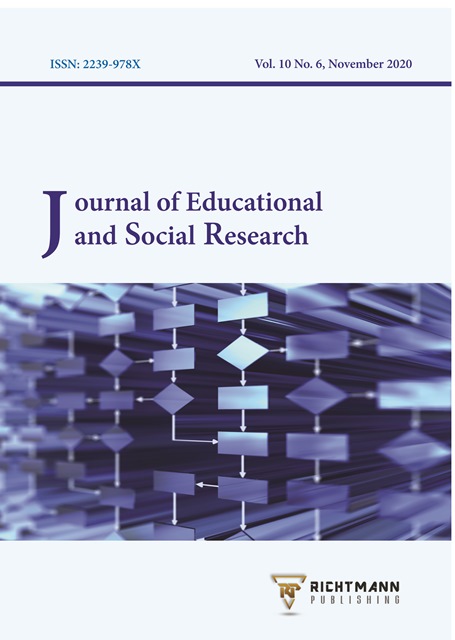Features of the Fundamentalization of Education in Higher Educational Institutions of Ukraine in the Context of Sustainable Development
DOI:
https://doi.org/10.36941/jesr-2020-0116Abstract
The article outlines peculiarities of the paradigm of fundamentalization of education in pedagogical higher educational institutions (HEIs) of Ukraine on the basis of the concept of sustainable development, namely: 1) performance of three interconnected functions of education — training, education, development; development of students’ ability to understand and implement sustainable development strategy in their future professional activity; 2) compliance of the paradigm with modern principles of structuring scientific knowledge, which are based on the internal logic of science, its place and role in the development of civilization in the 21st century; 3) ensuring the integrity of knowledge by integrating it around the core of fundamental scientific concepts; concentrated presentation of the fundamental laws and principles of science from a single methodological position, which allows building bridges between different subjects, without destroying their subject certainty; 4) formation of the theoretical type of scientific thinking of students; creation of intellectual, ethical and cultural foundation for personal self-development; 5) knowledge of modern information and communication technologies; oral and written communication in a foreign language. To acquaint students with the latest scientific achievements of mankind, the teacher must constantly “keep abreast” of socio-economic and environmental achievements of civilization on the basis of sustainable development, transform them into the content of the subject, as well as develop quality teaching and methodological support for its further understanding by future specialists. Given the rapid reduction of time between the invention and its widespread use, the content of subjects quickly becomes obsolete, which causes the inevitable lag of professional training of students behind the needs of modern society. To trace the synergy of humanization and ecologisation in the context of the fundamentalization of education on the basis of sustainable development, we studied the curricula of a number of pedagogical HEIs of Ukraine, namely: National Pedagogical Dragomanov University, Oleksandr Dovzhenko Hlukhiv National Pedagogical University, Volodymyr Vynnychenko Central Ukrainian Pedagogical University, Rivne State Pedagogical Institute, Ternopil Volodymyr Hnatiuk National Pedagogical University.
Downloads
Downloads
Published
Issue
Section
License
This work is licensed under a Creative Commons Attribution-NonCommercial 4.0 International License.









